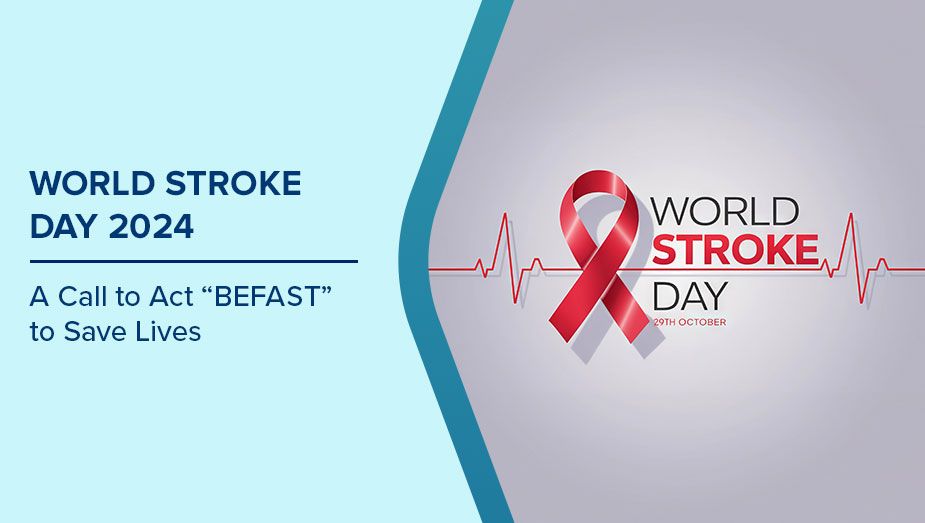Date: October 29

Stroke is one of the leading causes of death and disability worldwide, affecting millions each year.
You might already know stroke is serious. But how much do you know about preventing and recognizing its signs?
Why this day matters
- Stroke is a leading cause of disability and death worldwide.
- The risk of stroke increases with age, but it can strike at any time, even in young people.
- High blood pressure, smoking, diabetes, and high cholesterol are major risk factors.
- Many people don’t recognize the symptoms of stroke in time, delaying treatment.
- Stroke survivors may face long-term disabilities, affecting their quality of life and their families.
What you risk with stroke
- Permanent brain damage or disability
- Loss of speech, vision, or movement
- Increased risk of heart attack and other cardiovascular problems
- Emotional and mental health challenges such as depression or anxiety
- Reduced ability to care for yourself or your loved ones
What you can do to prevent stroke
- Maintain a healthy lifestyle: Regular exercise, balanced diet, and managing weight can lower stroke risk.
- Monitor your blood pressure: High blood pressure is the leading cause of stroke.
- Quit smoking: Smoking significantly increases your stroke risk.
- Control diabetes and cholesterol levels: These health conditions can contribute to stroke if left unchecked.
- Stay mentally active: Keeping your brain engaged can help with stroke prevention.
Ask yourself
- Do you have high blood pressure or other risk factors for stroke?
- Are you aware of the signs of stroke, like sudden numbness, confusion, or trouble speaking?
- Are you taking steps to reduce your stroke risk, such as exercising and eating well?
If any of these apply to you, today is a good day to make a change.
How to take action

- Know the signs of stroke: Sudden weakness on one side of the body, slurred speech, blurred vision, dizziness, or confusion.
- Call for emergency help: Every minute counts. Get medical attention immediately if you suspect a stroke.
- Live a healthier lifestyle: Adopt habits that reduce stroke risk, such as eating more fruits and vegetables, and exercising regularly.
- Control your health: Have regular check-ups for blood pressure, cholesterol, and blood sugar.
How you can help others
- Educate your family and friends about stroke risks and symptoms.
- Promote stroke awareness at schools, workplaces, and community centers.
- Support stroke research and initiatives that help raise awareness.
- Encourage loved ones to get regular check-ups and take care of their health.
Stroke doesn’t just affect the brain. It impacts your life, your family, and your future.
You have the power to reduce your risk and act when needed. Make today the day you take action.